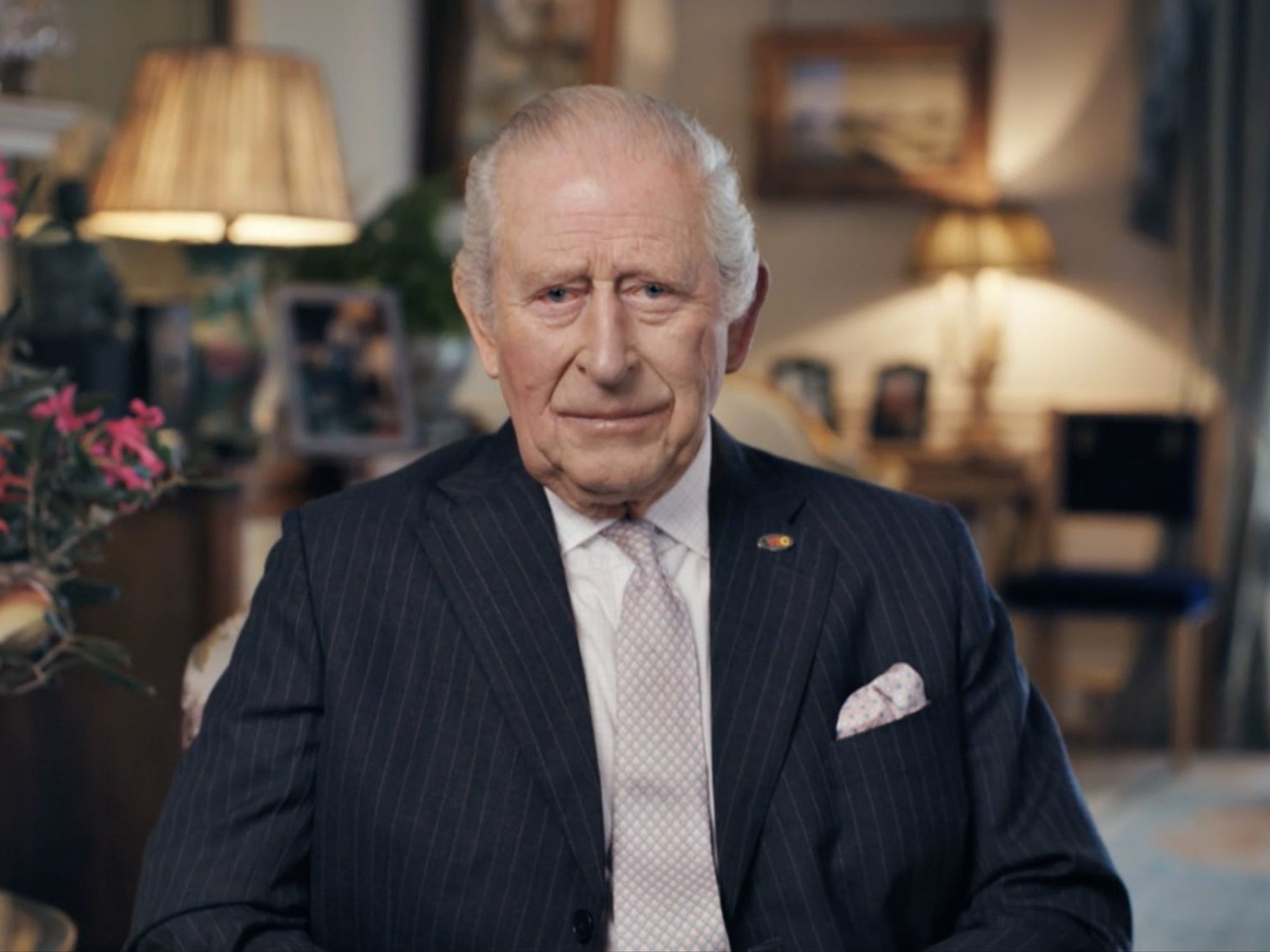Four big inheritance tax mistakes that you really don’t want to make

Inheritance tax is often referred to as the most-hated tax
|GETTY

Rising house prices and frozen inheritance tax allowances mean more families are set to be hit by inheritance tax in the coming years
Don't Miss
Most Read
Latest
Inheritance tax is often referred to as the most-hated tax in the UK, with a YouGov survey last year finding a majority of Britons (56 per cent) would support scrapping it.
Another poll last year found that 61 per cent of respondents think inheritance tax is unfair. When this group was asked why they thought this, 42 per cent - equating to 26 per cent of all Britons - cited a double tax, pointing out tax would already have been paid on the estate when it was earned.
Some 17 per cent, equating to 10 per cent of all Britons, said people should be free to leave their estate to people, and/or the government shouldn't be able to tax inheritance.
While the most recent figures show less than four per cent of estates paid inheritance tax, the burden is increasing.
Recent HMRC statistics show a £700million increase in inheritance tax (IHT) receipts in April, with experts attributing the surge to rising property values and asset prices.
At the same time, Rishi Sunak and Chancellor Jeremy Hunt have frozen inheritance tax thresholds until 2028, pushing more estates into the 40 per cent tax bracket.
The tax-free inheritance tax threshold, known as the nil rate band, stands at £325,000. If the value of the estate is greater than this, then an inheritance tax bill could arise.

Rishi Sunak and Chancellor Jeremy Hunt have frozen inheritance tax thresholds until 2028
|GETTY
Megan Jenkins, partner at Saltus told GB News: “While only around four per cent of UK deaths result in an IHT charge, rising property prices, particularly in London and the South East, combined with increased wealth accumulation and an ageing population, and the fact that the threshold has been frozen at £325,000 since 2009 will all contribute to more estates becoming liable.
“If the next Government decides to again maintain current thresholds without adjusting for inflation or the tapering of the family home allowance for estates over £2million, we could see an even larger proportion of the population affected.
“This potential rise in affected estates – combined with the fact that IHT is a tax on money that has already been taxed – means that IHT is often branded ‘the most hated tax in Britain’; and our data certainly suggests that IHT is regarded as unfair.”
According to the Saltus Wealth Index, which surveys 2,000 with assets of £250,000+, just four per cent of respondents think 40 per cent is a fair rate for inheritance tax, while 90 per cent called for the rate to be cut to 20 per cent.
Since 2017, there’s been another inheritance tax allowance, known as the residence nil-rate band.
It’s an extra amount - currently worth up to £175,000 - which can be added to the existing £325,000 allowance, if a person passes their main residence to their children (including adopted, foster or stepchildren) or grandchildren.
It means a person might be able to pass on up to £500,000 free from inheritance tax.
Married couples and civil partners can also transfer their unused inheritance tax threshold to the surviving partner, meaning it’s possible to pass on up to £1million without being hit by inheritance tax.
The residence nil rate band will gradually reduce for an estate worth more than £2million however. For each £2 the estate is worth more than the £2million taper threshold, the residence nil rate band will reduce by £1.
A person can give as much as they like to their spouse or civil partner, provided they live in the UK permanently. The couple must be legally married or in a civil partnership.
There are several ways in which people can reduce their inheritance tax liability, such as by making use of gift allowances during one’s lifetime.
For instance, people can give away as much as they like during their lifetime without it being subject to inheritance tax, provided they live for seven years after making the gift. Otherwise, it is subject to IHT at a taper rate.
There are also particular gift allowances, such as the “annual exemption” - which lets a person give away a total of £3,000 worth of gifts each tax year without them being added to the value of the estate.
The £3,000 can be given to just one person or split across several people. It’s also possible to carry any unused annual exemption forward into the next tax year (which begins on April 6), but this can only be done for one tax year.
Inheritance tax mistakes
Jenkins said one of the “biggest mistakes” people make when it comes to inheritance tax is not being aware of the inheritance tax thresholds.
“We find many people are worrying about an IHT problem they don’t have, while others are not aware that they do,” she said.
"The nil rate bank and the resident nil rate band allowances can be transferred between spouses if unused upon death, allowing a married couple to have an estate worth up to £1million before any inheritance tax (IHT) is owed, so make sure you know what these bands are before you worry unnecessarily, and if you do think you’ll be liable, seek advice.”
Another common error is having an out-of-date Will - or not having one at all.
Jenkins explained: “Many assume that without a Will, everything will automatically go to the spouse, but due to intestacy rules, this is not true.
“Assets transferred between spouses are exempt from IHT, so it's crucial to have an up-to-date Will to take advantage of this exemption.
"A Will ensures that the estate is distributed according to your wishes and minimizes unnecessary IHT.
“Without a Will, children might inherit part of the estate, potentially leading to an IHT liability depending on the asset value.”
People can mitigate inheritance tax through gifts, but mistakes are often made, Jenkins warned.
She explained: “Everyone has an annual exemption of £3,000 for gifts, along with exemptions for gifts out of regular income and mistakes are often made with these 'regular gifts. To qualify as a 'gift out of regular income,' the gift must come from surplus income, not capital, and the donor must maintain their standard of living. If the gift forces the donor to dip into capital, it doesn’t qualify.
"Gifts must also be consistent, like monthly contributions to a grandchild’s savings account. Many people make these gifts but fail to keep detailed records. To use this exemption, it's essential to keep records so executors can provide evidence.”
Some may think putting their home into their child’s name could remove it from their estate for inheritance tax purposes, but this could actually lead to problems.
Jenkins explained: "Another common mistake is thinking that gifting a family home to children or into a trust while continuing to live in it is a good way to mitigate tax liabilities as it often does not offer the IHT benefits many expect. For a gift to mitigate IHT, it must be irrevocable, and the donor should not benefit from it. Thus, living in the home after gifting it makes the gift ineffective.
"Some believe selling their home to their children below market value is a good way to avoid IHT, but HMRC considers the difference between the market and sale prices as a gift. If the seller dies within seven years of the sale, the home is included in the estate and may be taxable.
"IHT mitigation is complex, and getting it right is crucial. To avoid common mistakes and achieve the best outcomes, seeking professional advice is essential."
LATEST DEVELOPMENTS:
Stevie Heafford, tax partner at accountancy firm HW Fisher has warned that the ongoing freeze to the thresholds means “many” people have found themselves “caught in the inheritance tax trap” for the first time.
She said: “Until the threshold is increased in line with UK inflation rates, HMRC will continue to cash in on one of the country’s most unpopular taxes.
“This is why careful tax planning is important for everyone - not just the wealthy.”
With thresholds frozen, Heafford says it’s “more important than ever” for individuals to understand the rules around gifting, “to ensure they can leave as much behind for their loved ones as possible”.
The tax partner is trying to bust common inheritance tax myths and mistakes, by answering some frequently asked questions.
1. When do I need to start inheritance tax planning?
“As early as possible as your circumstances and exposure to IHT will change over time. Early on, an insurance policy might be all that is necessary but more complex planning will be appropriate as wealth increases.
2. Can I afford to make lifetime gifts?
“A good tool is a professional cash flow forecast which is updated regularly. You can plan for major life events (such as marriage, holidays, care fees) and see what your overall position is.”
3. Is IHT planning only for the wealthy?
“No – many people have been pushed into the IHT net due to increases in property values.”
4. What is the current Nil Rate Band?
“The current nil rate band is £325,000 per person. This can be used against both lifetime transfers and transfers on death. It effectively 'refreshes' every seven years.
"Any unused nil rate band as at the date of death can be transferred to a surviving spouse for use on their death.”
5. What is the Residence Nil Rate Band?
“The RNRB is a further nil rate band of up to £175,000 which is available if the residential property is passed to lineal descendants. It is only available against the death estate, but any unused relief can be passed to a surviving spouse.
"The relief is tapered for estates in excess of £2million.”
6. Can I make lifetime gifts free of IHT?
"Yes, the Nil Rate Band can be set against lifetime gifts as well as on death. There is also an annual exemption of £3,000 – this can be rolled forward up to one tax year.
"In addition to this, small gifts of up to £250 and gifts out of excess income can be made to anyone free of IHT. You can also make gifts of between £1,000 and £5,000 (depending on the relationship to the giftee) in consideration of marriage or civil partnership."
7. Is it tax-efficient to make gifts to charity?
"Yes – gifts to charity are tax-exempt and if you leave at least 10 per cent of your net estate to charity, the rate of IHT is reduced to 36 per cent."
8. I have a business. Will that be exempt?
"Business Property Relief of up to 100 per cent is available for businesses and shares in certain companies, as well as some assets that are held personally, but used by the business/company. However, it is easy to taint this if investment assets or excess cash are held within a trading business."
9. Can I leave my estate to my spouse tax-free?
"Yes, if the estate is left to a surviving spouse, this is tax-free. The surviving spouse will also inherit any unused Nil Rate Band and Residence Nil Rate Band.
"Bear in mind that this will increase the spouse’s estate for IHT so may only be delaying the problem."
10. Can I pass on my pension tax-free?
"Yes, you can pass on a pension pot tax IHT-free. It is therefore better to draw down on cash assets (bank accounts, ISAs etc) in priority to the pension as those assets will be subject to IHT on death," Heafford said.
Pension savers are urged to take five minutes to fill out an expression of wish form, to help ensure the right person inherits the savings upon death.
While it’s not legally binding, the “nomination” form acts as a guide for the pension provider when they decide who will get the savings.
Clare Stinton, head of workplace savings analysis at Hargreaves Lansdown, said completing the form “could save your loved ones from months of financial stress when you die”.
She added: “Failing to update an old instruction could mean an ex-partner receives the benefits instead of a current partner. Pensions are outside of your estate and so aren’t covered by your will and in most cases the final decision on who receives what rests with the pension provider.
“Pensions are typically the largest asset after the home and passing it on could make a real difference to your loved one’s lives.
“A clear instruction can quicken the administration process and ensure the money reaches your intended beneficiaries as soon as possible so it’s vital you update your expression of wish forms following key life events.”










